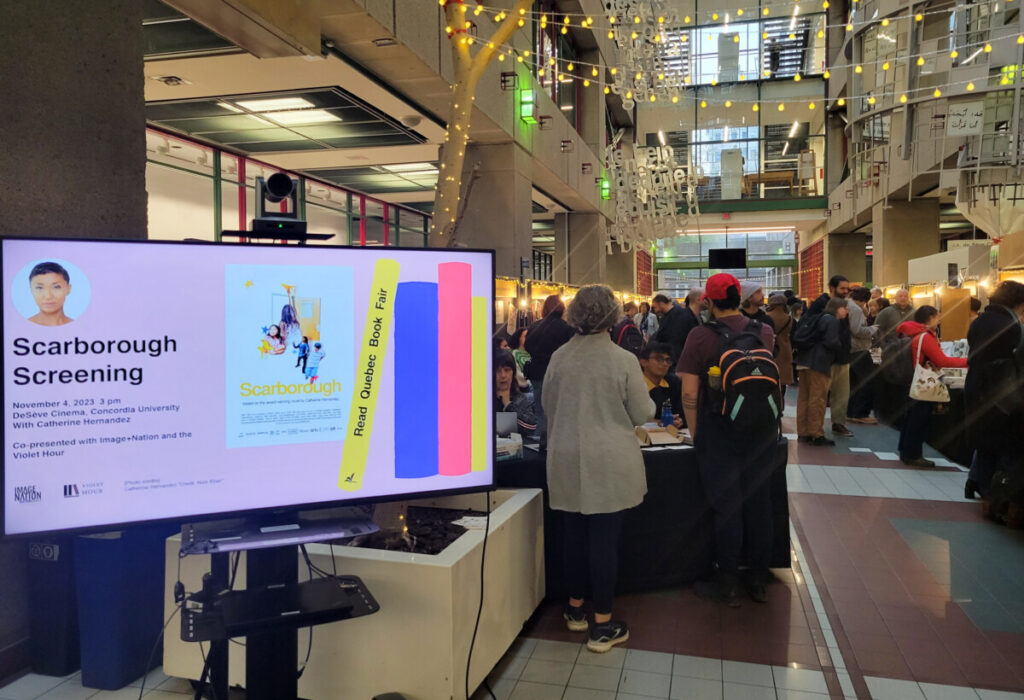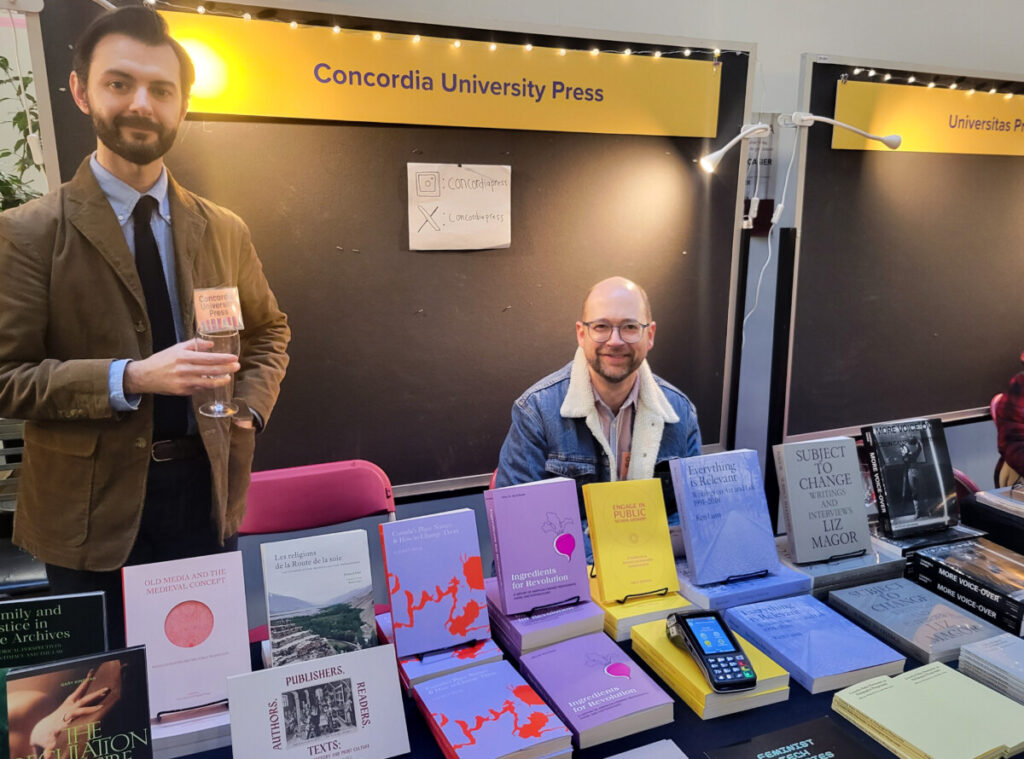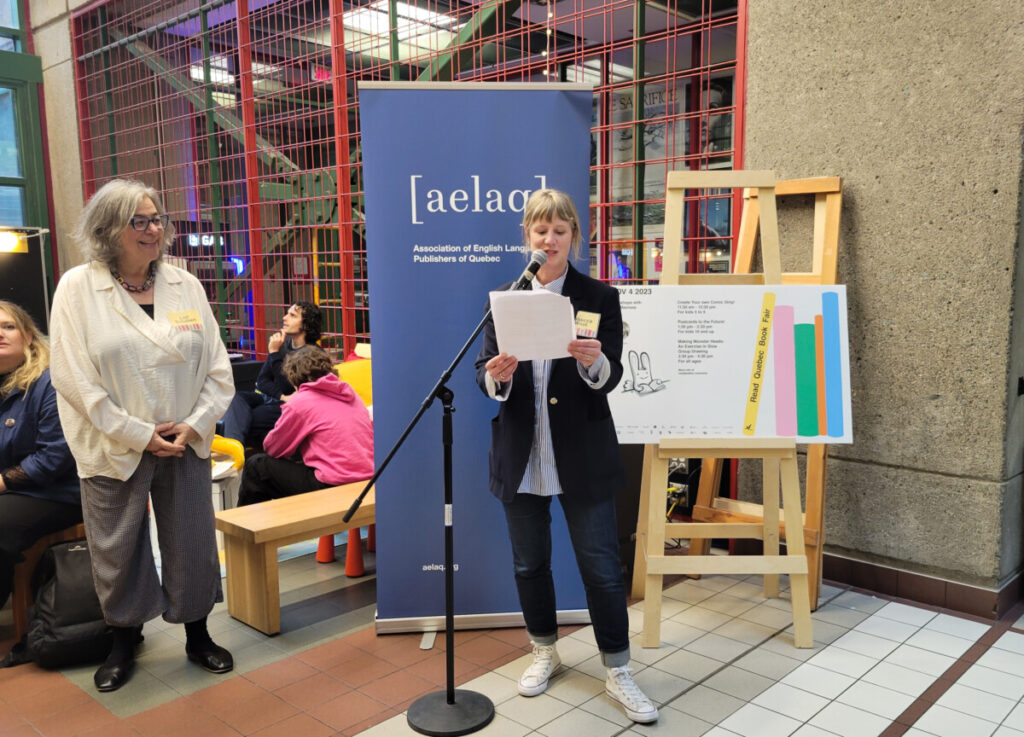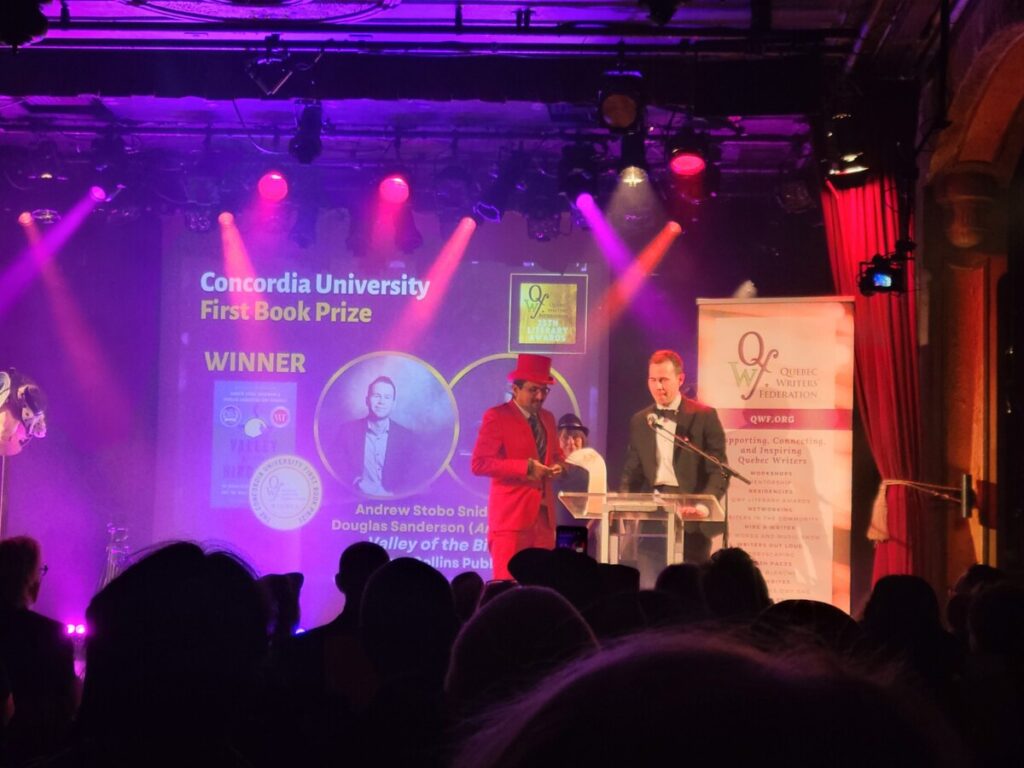The Quebec Writers Federation’s recent events have been a testament to the thriving anglophone literary community in Quebec.
The Read Quebec book fair, held between Nov. 3–4 in Concordia’s J.W. McConnell atrium, was a glorious demonstration of the anglophone literary community’s integral value to Montréal’s culture and economy.

The space was shoulder-to-shoulder with lovers of literature who had gathered to highlight the work of English-language publishers in and around Montréal, including the Montréal Review of Books, Maisonneuve Magazine, Drawn & Quarterly publishers, Concordia University Press and more. Each organization brought along a selection of their recent publications to show the incredible range of anglophone literature being produced in Quebec. From art history to science fiction, every genre was represented.

The event was collaboratively hosted by the Quebec Writers Federation (QWF), the Association of English-Language Publishers of Quebec (AELAQ) and Read Quebec with a shared mission to promote the brilliance and celebrate the continued presence of anglophone authors in Montréal.

As an American student studying art history at Concordia, the proposed tuition hikes for traditionally anglophone universities in Quebec was particularly personal. As a writer and researcher, what opportunities are left for me after graduation if I choose to stay here? Sometimes I can’t help but think it might be wiser to move back home. This would mean leaving behind my partner, my friends and the network I worked so hard to build here. But if the only thing standing in the way of my career is a language barrier, it almost seems like I would be doing myself a disservice by staying.
As I navigate these difficult and emotional decisions, I realize I am not alone. Out-of-province and international students are equally concerned for their futures in Montréal—we’re experiencing the dim feeling of being unwelcome in the city we have come to know and love. However, we are more determined than ever to assert our value in the province. This jovial evening brought me and my fellow aspiring writers a great glimmer of hope and a strong sense of community.
Further strengthening the anglophone writing community’s sense of camaraderie and celebration, on Nov. 13, QWF hosted their 25-year anniversary gala at Cabaret Lion d’Or. This event honoured the brilliant work of both emerging and established writers with awards for a number of categories.

Katherine Li’s Efflorescence won the QWF College Writers Award for students; H Felix Chau Bradley’s fiction work Three Disorientations won the Carte Blanche Award; the Janet Savage Blanchford Prize for Children’s and Young Adult Literature went to Edeet Ravel for her book A Boy is Not a Ghost; Erin Robinsong’s Wet Dream won the A.M. Klein Prize for Poetry; Fayne by Ann-Marie MacDonald won the Paragraphe Hugh MacLennan Prize for Fiction; and finally, Andrew Stobo Sniderman and Douglas Sanderson’s Valley of the Birdtail: An Indian Reserve, a White Town, and the Road to Reconciliation won both the Concordia University First Book Prize and the Mavis Gallant Prize for Non-fiction.
Many of the winners spoke to the urgency of writing as a means to bring about truth, justice and solidarity. The atmosphere of the event was one of gratitude to each other and our growing community, to those who came before us and mentored us, and to the art of writing in the English language as a tool of uninhibited expression.




